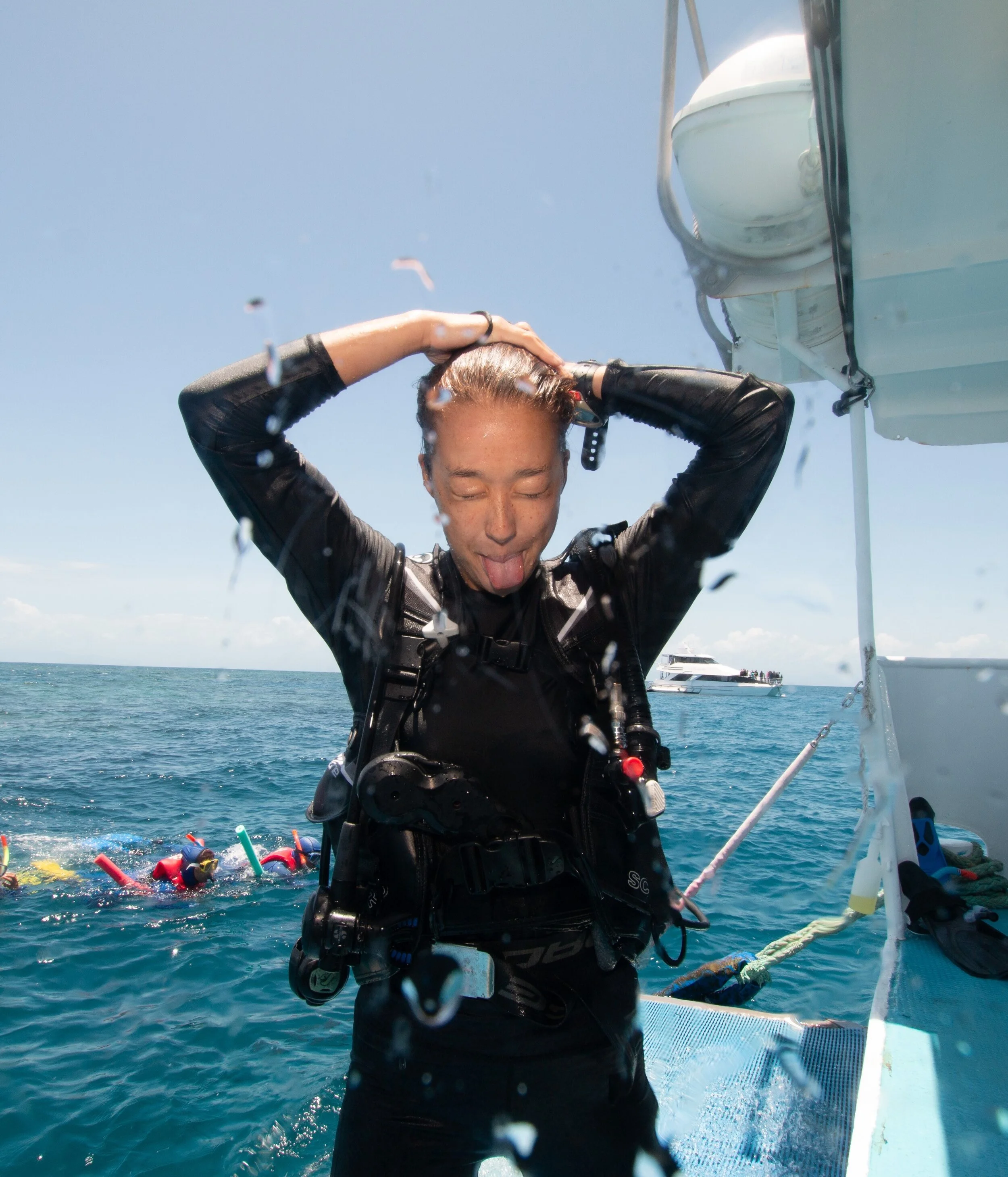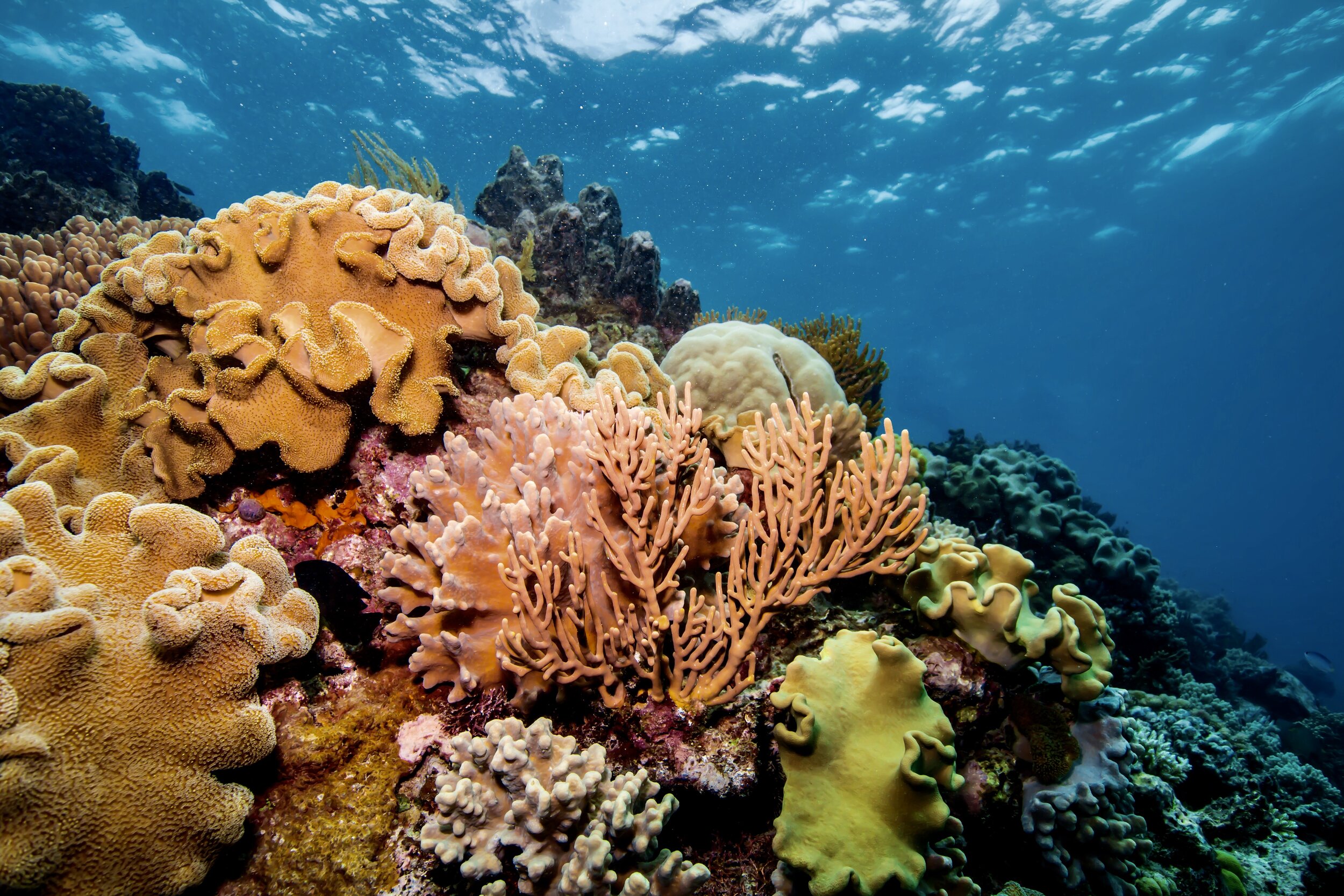How to help save the ocean
(it’s probably not what you think)
As a dive instructor and social scientist, there is one question that I like to ask everyone I meet, “What does ‘saving the ocean’ look like to you?”. I often get similar responses – ditching those pesky straws and other single-use plastics, reducing pollution and overfishing, protecting and preserving marine species, restoring the worlds coral reefs, and promoting ‘eco-tourism’ practices (take nothing but memories, leave nothing but bubbles they say).
If your answer looks like any of these, then you are not alone. According to several studies from around the world, these answers reflect the top threats to the ocean perceived by the public. And this is not a bad thing by any stretch, these are all incredibly important steps towards a healthier ocean.
But you might have noticed that one threat in particular is missing, and it’s undeniably the biggest and baddest threat of them all. So bad in fact, that it is literally changing the physical and chemical nature of the entire ocean (yep, the whole thing) – climate change. Yet somehow, when it comes to “saving the ocean”, mitigating global climate change never seems to be the “go-to” solution.
But why is this the case?
We tend to separate climate action and ocean conservation
Although we often talk about climate impacts on the ocean (e.g. corals bleaching, oceans rising etc.), and more recently ocean solutions for the climate (e.g. offshore wind power), climate action and ocean conservation have traditionally been separate movements, each with pretty different connotations. For example, climate action is politically charged, while protecting the ocean is almost always good (because, who doesn’t love the ocean?). Climate activists are often branded as “extremists”, while ocean advocates tend to be painted as everyday heroes.
It’s a distinction you’ll see quite clearly through a quick scroll online - the climate bubble and the ocean bubble (excuse the pun). While it sometimes forgets the ocean, the climate space overall has a pretty holistic focus on dismantling the systems that drive global warming. The marine space on the other hand, tends to avoid connecting such overarching issues with saving the ocean. While every now and then calls to “mind your carbon footprint” or “reduce your energy consumption” make an appearance, climate advocacy and activism (and everything that comes with them) often do not. Even when the impacts of climate change are devastatingly obvious (e.g. coral bleaching), rather than call for a stand against fossil fuels, the marine space is filled with calls to switch to a reef-safe sunscreen and go plastic-free. In fact, a recent survey in Australia revealed that less than 5 percent of people associate any concrete climate action with protecting marine environments such as coral reefs. If we lived in a world where policy decisions were based on science rather than popular opinion, this dissociation between climate action and saving the ocean wouldn’t be such a problem. But, unfortunately, that is not the world we live in.
While the ocean is slowly making its way into climate policy (thanks to incredible people like Dr. Ayana Elizabeth Johnson), marine policy still seems to shy away from action on climate change. For example, the plan the save the Great Barrier Reef (the largest reef system in the world) considers national climate action to be "beyond the scope", even though without it, experts say the entire plan is likely unachievable (that’s right, the world's largest coral reef has NO climate policy to protect it). This is what happens when climate action is seen as one thing, and ocean conservation is seen as another. Governments can please ocean and turtle enthusiasts with things like bans on single-use plastic, and feel confident that they won’t be pressured into taking stronger action on climate change, because hey, they already saved the ocean, right?
Why integrating them matters
Firstly, despite passionate marine advocates and eco-warriors around the world, no amount of beach clean-ups or seafood labelling will stop what is to come. Warming, rising, and acidifying oceans all threaten total ecological collapse (which is as horrifying as it sounds). The good news? We know exactly how to stop this from happening (goodbye fossil fuels, hello renewable energy). But with “fossil fools” in leadership positions and greedy corporations actively avoiding action, an unfair amount of responsibility is placed on us, individuals and communities, to push climate policy to the top of everyone’s agenda.
Yes, you read that right, climate advocacy can help us save the ocean. We must become engaged climate citizens.
But here’s the second thing - when it comes to climate change, we are currently dealing with a serious public engagement problem. While climate activists and frontline communities have been putting in the work for decades, the general public has yet to make the leap over what we call the “attitude-action” gap. This means that despite most people being aware and concerned about climate change, actual engagement in climate advocacy is low. But this will not work, if we want to pressure governments into doing better, we need as many people engaged as we can get.
Integrating climate action with ocean conservation could be the motivational boost that we need because, put simply, people are passionate about the ocean. In fact, one of my favourite phrases is that people are ocean. And so, framing climate action as a way to save the ocean may generate the extra engagement that we need. Can you imagine channelling worldwide passion for the ocean into tangible, meaningful climate action? Can you imagine every ocean advocate calling for an end to fossil fuels? It would be a huge step forward for both movements. .
How to save the ocean? Don’t forget to be a climate advocate
It’s true that climate action is not as exciting as planting coral gardens, or as visible as great floating garbage patches, or as emotional as entangled marine life. But it’s also true that our best shot at saving the ocean is reducing our carbon emissions.
So, the next time someone asks you how to save the ocean? Make sure to mention the following:
Advocate for marine parks and for renewable energies
Fight the good fight against plastic pollution and fossil fuels
Choose sustainable seafood and lower carbon emissions
Consider reef-safe products and energy efficient ones
You get the idea.
That might feel like a lot to advocate for all at once, but if that is what is needed to save our ocean planet? It’s worth it.


